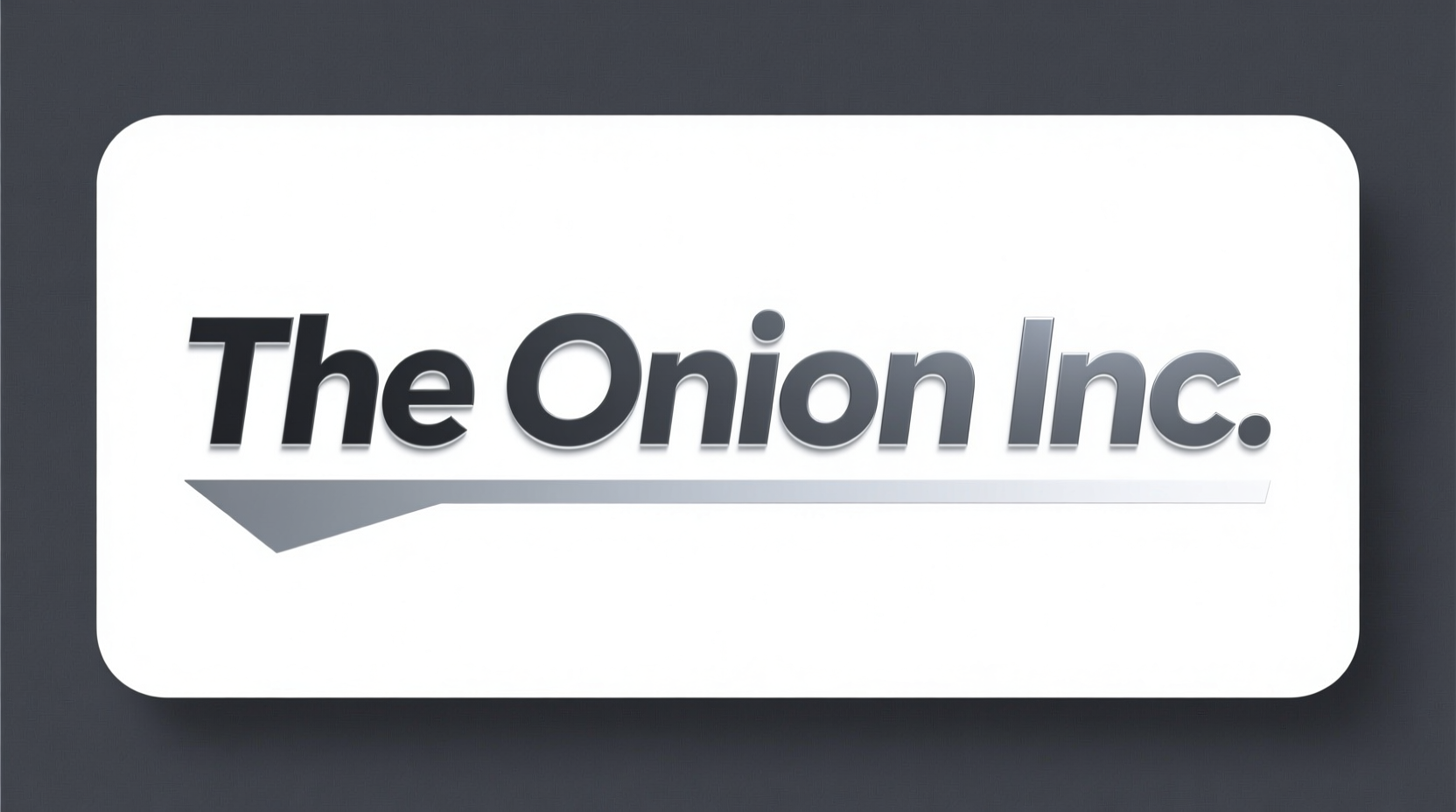Understanding The Onion Inc. requires recognizing its fundamental purpose: delivering satire through news parody. For over three decades, this organization has mastered the art of crafting fictional stories that mirror real journalism formats while providing social commentary. If you've ever questioned whether The Onion reports real news, this guide clarifies everything you need to know about this influential satirical institution.
What Exactly Is The Onion Inc.?
The Onion Inc. operates as the corporate entity behind The Onion, America's premier satirical news organization. Despite its newspaper-like presentation, every article published under The Onion banner is entirely fictional and crafted for comedic effect. The company has built its reputation on creating plausible-sounding headlines and stories that cleverly exaggerate real-world situations.
Many readers initially mistake The Onion's content for legitimate journalism due to its professional formatting and writing style. This confusion represents the organization's greatest achievement—its satire is so well-crafted that it often mirrors real news outlets in structure and tone, while delivering completely fabricated content.
| Feature | The Onion | Traditional News Outlet |
|---|---|---|
| Content Purpose | Satire and social commentary | News reporting and information |
| Article Accuracy | Fictional by design | Factual verification required |
| Editorial Process | Comedy writing and refinement | Fact-checking and verification |
| Legal Disclaimer | "Our stories are satirical" | "All rights reserved" |
The Evolution of The Onion: From Print to Digital Dominance
Understanding the onion inc business model requires examining its historical development. What began as a small-town newspaper has transformed into a digital media powerhouse through several key phases:
- 1988-1996: Local Print Origins - Founded by Tim Keck and Christopher Johnson in Madison, Wisconsin, The Onion started as a free weekly print publication distributed locally
- 1996-2007: National Expansion - Expanded to multiple U.S. cities including Chicago, New York, and Austin, maintaining a print-first approach
- 2007-2019: Digital Transformation - Shifted focus to online content after ceasing most print operations, developing a robust digital presence
- 2019-Present: Modern Satire Platform - Operates exclusively as a digital entity with video content, podcasts, and social media integration
This the onion inc timeline demonstrates how the organization adapted to changing media landscapes while maintaining its satirical mission. According to Columbia Journalism Review, The Onion's transition from print to digital represents one of the most successful adaptations by any alternative media organization in the internet era.
How The Onion's Satirical Journalism Actually Works
The brilliance of the onion inc satirical approach lies in its methodology. Writers employ several techniques to create effective satire:
- Exaggeration of real events - Taking actual news stories and amplifying elements to absurd levels
- Inversion of expectations - Presenting situations where conventional wisdom is completely reversed
- Deadpan delivery - Writing fictional stories with the serious tone of traditional journalism
- Cultural commentary - Using humor to highlight societal issues and human behavior patterns
Unlike fake news designed to deceive, The Onion explicitly identifies itself as satire. Their website footer clearly states: "All content here is satirical. The Onion is a registered trademark and all content here is copyright protected." This transparency distinguishes legitimate satire from malicious misinformation.

Business Operations Behind The Onion Inc
Despite its humorous content, the onion inc corporate structure operates as a serious business entity. The organization generates revenue through several legitimate channels:
- Digital advertising on their website and social media platforms
- Sponsored content that maintains satirical integrity while promoting brands
- Merchandise sales featuring popular satirical phrases and logos
- Licensing deals for television adaptations and other media formats
According to business records filed with the Wisconsin Department of Financial Institutions, The Onion Inc. maintains proper corporate governance with designated officers and registered agents. This corporate legitimacy contrasts with its satirical content, creating an interesting duality that often confuses new readers.
When People Mistake The Onion for Real News
One of the most persistent challenges surrounding the onion inc media presence is the frequency with which readers share its content as factual news. This phenomenon occurs primarily in three contexts:
- Social media sharing - Users repost satirical headlines without recognizing the source
- Political discourse - Deliberate sharing of Onion articles to discredit opposing viewpoints
- International audiences - Readers unfamiliar with American satire traditions
A 2022 study by the University of Pennsylvania's Annenberg School found that approximately 15% of American adults have mistakenly believed at least one Onion article was factual. The research, published in Digital Journalism, noted that confusion decreases significantly when readers recognize The Onion's branding.
Why The Onion Matters in Today's Media Landscape
Despite being fictional, the onion inc cultural impact extends far beyond comedy. The organization serves several important functions:
- Provides social commentary through humor that reaches audiences traditional journalism cannot
- Demonstrates media literacy challenges in the digital age
- Influences actual journalism through its sharp observations of cultural trends
- Preserves satirical journalism as a legitimate art form in the internet era
Many professional journalists credit The Onion with sharpening their understanding of news conventions. As noted in Columbia Journalism Review, "The best satire requires deep understanding of the subject it mocks—The Onion's writers demonstrate remarkable media literacy through their work."
Common Misconceptions About The Onion Inc
Several persistent myths surround the onion inc operations. Let's clarify the most frequent misunderstandings:
- Myth: The Onion is part of a disinformation campaign
Fact: The organization explicitly identifies its content as satire with clear disclaimers - Myth: The Onion writers intend to deceive readers
Fact: Their goal is humor and social commentary, not deception - Myth: The Onion is owned by major media conglomerates
Fact: It operates as an independent entity with its own corporate structure - Myth: Sharing The Onion articles proves media illiteracy
Fact: Even experienced journalists occasionally mistake well-crafted satire for real news











 浙公网安备
33010002000092号
浙公网安备
33010002000092号 浙B2-20120091-4
浙B2-20120091-4